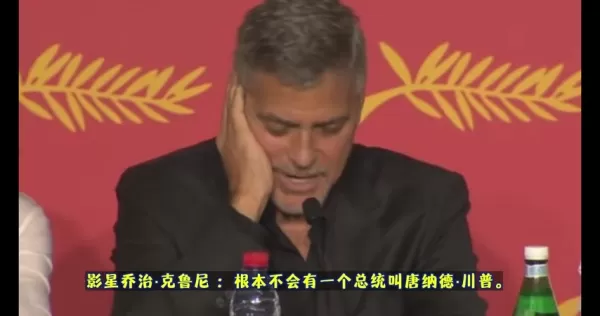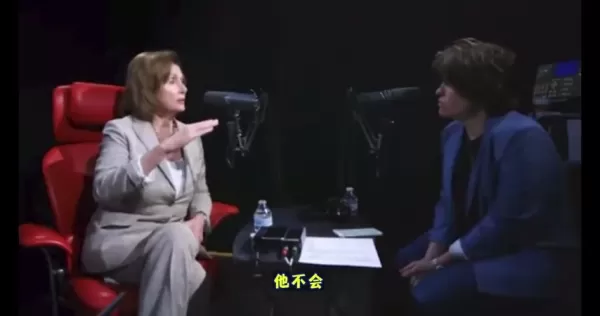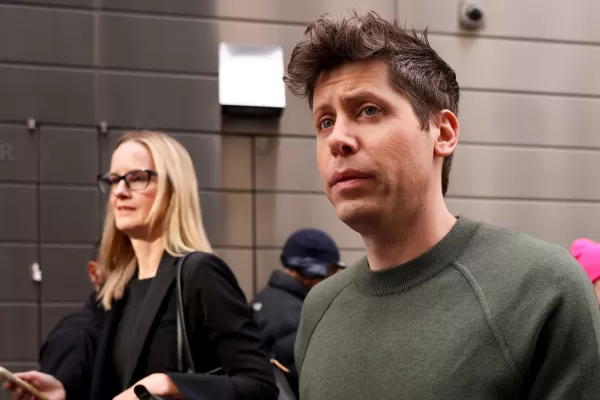Trump’s Rise: How Political Experts Misjudged His Presidency
In politics, forecasts often miss the mark. Experts, analysts, and pundits frequently predict election results and political trends, but history shows their errors, especially with Donald J. Trump’s ascent to the presidency. This piece explores the striking missteps of those who deemed a Trump presidency impossible, revisiting their bold claims, the context behind them, and the lessons from when the improbable became reality.
Key Points
Many experts and celebrities asserted Donald Trump could never become U.S. President.
These claims stemmed from Trump’s unorthodox approach, provocative remarks, and lack of political background.
Defying these forecasts, Trump won the 2016 election.
These misjudgments reveal the limits of political forecasting and the need to account for unconventional candidates.
This article reviews specific prediction failures, their causes, and lessons from this historic moment.
The Echo Chamber of Doubt: Experts Speak Out
Celebrity and Political Skepticism
Before Trump’s stunning rise to the White House, a chorus of voices from Hollywood to Capitol Hill dismissed his candidacy as implausible. From stars to strategists, many saw Trump’s bid as a fleeting stunt doomed to fail. Here’s a look at those early reactions and their context.
George Clooney, a vocal Hollywood activist, scoffed at the idea of a Trump presidency.

Clooney’s now-ironic remark, “Donald Trump won’t be President. It’s not happening,” captured a widespread belief that Trump’s campaign lacked the seriousness needed for the Oval Office. Made amid celebrity endorsements and entrenched political norms, his words reflect the bubble of disbelief surrounding Trump’s early run.
Bernie Sanders, a veteran politician and presidential candidate, shared this view. With firm conviction, he told supporters, “Trump won’t be called President.” Rooted in his progressive vision, Sanders’ prediction underestimated Trump’s populist appeal, revealing a disconnect among seasoned politicians.
Nancy Pelosi, a Democratic Party titan, confidently declared, “Trump will not be President, I guarantee it.” Her assurance, backed by decades of political experience, underscores how established figures misread Trump’s connection with voters feeling ignored by the elite.
These reactions from celebrities and politicians fueled a narrative of impossibility, highlighting how out of touch the establishment was with a growing segment of American voters.
Satire and Miscalculation
Another tactic to dismiss Trump’s rise was satire and minimization. Comedians and commentators treated his candidacy as a joke, assuming it would fade. This approach, while amusing, underestimated Trump’s momentum and the forces behind his support.
Tom Hanks, a cultural icon, responded to Trump’s candidacy with humor and disbelief.

Hanks’ playful dismissal, evoking spaceships and dinosaurs, reflected the absurdity he saw in a Trump presidency. Such humor, while popular, downplayed the serious concerns Trump’s campaign tapped into.
Seth Meyers, a late-night host, mocked Trump’s run, saying, “Trump claims he’ll run as a Republican, but I thought he was joking.” Delivered at a White House Correspondents’ Dinner, this quip typified the early view of Trump as more entertainer than leader.
John Oliver, a sharp political commentator, jokingly endorsed Trump’s run, offering a mock campaign check for laughs. His satire, meant to ridicule, misjudged Trump’s ability to rally a significant voter base.
By framing Trump’s bid as a punchline, these figures normalized his presence while failing to grasp the real anxieties his message addressed.
An Unlikely Victory: The Candidate Gains Ground
As Trump racked up primary wins, some pundits clung to their disbelief. Even as evidence mounted, the notion of a Trump presidency seemed far-fetched. Some cited reasons he couldn’t win, ignoring the shifting tide. Here are key examples.
Barack Obama, then-President, laughed off Trump’s chances, likening them to a Saturday Night Live skit, showing even top leaders struggled to take him seriously.

Elizabeth Warren boldly claimed Trump would never be President. Her stance, rooted in progressive values, missed the populist wave that carried Trump to victory.
Many pundits failed to see beyond traditional political norms, unable to grasp how Trump connected with voters feeling sidelined. This serves as a humbling reminder that political paths are rarely predictable.
The ‘Trump-Proof’ Myth: Why Experts Erred
Overlooking the Silent Majority
A major reason for these miscalculations was ignoring the ‘silent majority’—working-class, rural, and conservative voters alienated by the establishment. Feeling dismissed by mainstream narratives, they embraced Trump’s economic populism and cultural nationalism, drawn to his promise to “make America great again.”
Pundits focused on conventional voting patterns and strategies, assuming Trump’s style would alienate moderates. This misread the depth of his support among those who felt the political system had failed them.
By overlooking these voters, experts created a cycle of disbelief, blind to the growing momentum behind Trump’s campaign.
The Power of Bold Rhetoric
Trump’s provocative, direct communication style was another key factor. His simple, emotional language and defiance of political correctness resonated with voters tired of polished politicians. Critics focused on his lack of policy depth, missing how his rhetoric connected with disenfranchised voters.
Trump’s messaging wasn’t about policy nuance but about forging an emotional bond, promising bold change. His media savvy amplified this, a force pundits failed to fully grasp.
Refining Political Predictions
Embrace a Broader Approach
To enhance forecasting, analysts must look beyond polls and demographics, factoring in economic fears, cultural values, social media trends, and unconventional candidates. Relying on old models risks missing major shifts, as Trump’s rise showed.
Hear the Marginalized
Understanding political change requires engaging with overlooked communities—working-class, rural, and disenfranchised groups. Their concerns offer critical insights into emerging political movements.
Stay Humble and Open
The biggest lesson from Trump’s rise is the need for humility. Political forecasting is uncertain, and even experts can be blindsided. Challenging assumptions and acknowledging limits is key to better predictions.
Pros and Cons of Political Forecasting
Pros
Guides Campaign Strategies: Informs resource allocation.
Boosts Public Insight: Clarifies potential outcomes.
Sparks Engagement: Heightens interest in politics.
Signals Shifts: Spots changes in public sentiment.
Cons
Often Inaccurate: Vulnerable to unexpected events.
May Bias Voters: Can skew perceptions and behavior.
Misleads Public: Overconfidence undermines trust.
Simplifies Complexity: Reduces politics to probabilities.
FAQ
Why did so many misjudge Trump’s presidency?
Experts underestimated Trump’s appeal to a ‘silent majority,’ focusing on traditional models and missing his populist draw. They dismissed his media mastery and emotional connection with voters.
What are common forecasting pitfalls?
Overreliance on polls, ignoring unconventional candidates, dismissing marginalized voices, confirmation bias, and lacking humility in recognizing expertise’s limits.
How can political analysis improve?
Use a multi-faceted approach, engage with overlooked communities, and embrace humility to challenge assumptions and anticipate trends.
Related Questions
How has social media affected prediction accuracy?
Social media offers rich data on public sentiment but poses challenges like misinformation and echo chambers. Combining it with traditional data and advanced analytics improves forecasting accuracy.
Related article
 AI to Unlock New Discoveries in 2026, Says OpenAI CEO
In a recent essay titled "The Gentle Singularity," published on Tuesday, OpenAI CEO Sam Altman outlined his vision for AI's transformative impact on humanity over the next 15 years.Altman's essay blen
AI to Unlock New Discoveries in 2026, Says OpenAI CEO
In a recent essay titled "The Gentle Singularity," published on Tuesday, OpenAI CEO Sam Altman outlined his vision for AI's transformative impact on humanity over the next 15 years.Altman's essay blen
 Ai2 Unveils Compact AI Model Outperforming Google, Meta Rivals
Small AI models are making waves this week.On Thursday, Ai2, a nonprofit AI research group, launched Olmo 2 1B, a 1-billion-parameter model that surpasses similarly-sized models from Google, Meta, and
Ai2 Unveils Compact AI Model Outperforming Google, Meta Rivals
Small AI models are making waves this week.On Thursday, Ai2, a nonprofit AI research group, launched Olmo 2 1B, a 1-billion-parameter model that surpasses similarly-sized models from Google, Meta, and
 Tech Giants Divided on EU AI Code as Compliance Deadline Nears
The EU's AI General-Purpose Code of Practice has revealed stark differences among leading tech firms. Microsoft has expressed its intent to adopt the European Union's voluntary AI compliance framework
Comments (0)
0/200
Tech Giants Divided on EU AI Code as Compliance Deadline Nears
The EU's AI General-Purpose Code of Practice has revealed stark differences among leading tech firms. Microsoft has expressed its intent to adopt the European Union's voluntary AI compliance framework
Comments (0)
0/200
In politics, forecasts often miss the mark. Experts, analysts, and pundits frequently predict election results and political trends, but history shows their errors, especially with Donald J. Trump’s ascent to the presidency. This piece explores the striking missteps of those who deemed a Trump presidency impossible, revisiting their bold claims, the context behind them, and the lessons from when the improbable became reality.
Key Points
Many experts and celebrities asserted Donald Trump could never become U.S. President.
These claims stemmed from Trump’s unorthodox approach, provocative remarks, and lack of political background.
Defying these forecasts, Trump won the 2016 election.
These misjudgments reveal the limits of political forecasting and the need to account for unconventional candidates.
This article reviews specific prediction failures, their causes, and lessons from this historic moment.
The Echo Chamber of Doubt: Experts Speak Out
Celebrity and Political Skepticism
Before Trump’s stunning rise to the White House, a chorus of voices from Hollywood to Capitol Hill dismissed his candidacy as implausible. From stars to strategists, many saw Trump’s bid as a fleeting stunt doomed to fail. Here’s a look at those early reactions and their context.
George Clooney, a vocal Hollywood activist, scoffed at the idea of a Trump presidency.

Clooney’s now-ironic remark, “Donald Trump won’t be President. It’s not happening,” captured a widespread belief that Trump’s campaign lacked the seriousness needed for the Oval Office. Made amid celebrity endorsements and entrenched political norms, his words reflect the bubble of disbelief surrounding Trump’s early run.
Bernie Sanders, a veteran politician and presidential candidate, shared this view. With firm conviction, he told supporters, “Trump won’t be called President.” Rooted in his progressive vision, Sanders’ prediction underestimated Trump’s populist appeal, revealing a disconnect among seasoned politicians.
Nancy Pelosi, a Democratic Party titan, confidently declared, “Trump will not be President, I guarantee it.” Her assurance, backed by decades of political experience, underscores how established figures misread Trump’s connection with voters feeling ignored by the elite.
These reactions from celebrities and politicians fueled a narrative of impossibility, highlighting how out of touch the establishment was with a growing segment of American voters.
Satire and Miscalculation
Another tactic to dismiss Trump’s rise was satire and minimization. Comedians and commentators treated his candidacy as a joke, assuming it would fade. This approach, while amusing, underestimated Trump’s momentum and the forces behind his support.
Tom Hanks, a cultural icon, responded to Trump’s candidacy with humor and disbelief.

Hanks’ playful dismissal, evoking spaceships and dinosaurs, reflected the absurdity he saw in a Trump presidency. Such humor, while popular, downplayed the serious concerns Trump’s campaign tapped into.
Seth Meyers, a late-night host, mocked Trump’s run, saying, “Trump claims he’ll run as a Republican, but I thought he was joking.” Delivered at a White House Correspondents’ Dinner, this quip typified the early view of Trump as more entertainer than leader.
John Oliver, a sharp political commentator, jokingly endorsed Trump’s run, offering a mock campaign check for laughs. His satire, meant to ridicule, misjudged Trump’s ability to rally a significant voter base.
By framing Trump’s bid as a punchline, these figures normalized his presence while failing to grasp the real anxieties his message addressed.
An Unlikely Victory: The Candidate Gains Ground
As Trump racked up primary wins, some pundits clung to their disbelief. Even as evidence mounted, the notion of a Trump presidency seemed far-fetched. Some cited reasons he couldn’t win, ignoring the shifting tide. Here are key examples.
Barack Obama, then-President, laughed off Trump’s chances, likening them to a Saturday Night Live skit, showing even top leaders struggled to take him seriously.

Elizabeth Warren boldly claimed Trump would never be President. Her stance, rooted in progressive values, missed the populist wave that carried Trump to victory.
Many pundits failed to see beyond traditional political norms, unable to grasp how Trump connected with voters feeling sidelined. This serves as a humbling reminder that political paths are rarely predictable.
The ‘Trump-Proof’ Myth: Why Experts Erred
Overlooking the Silent Majority
A major reason for these miscalculations was ignoring the ‘silent majority’—working-class, rural, and conservative voters alienated by the establishment. Feeling dismissed by mainstream narratives, they embraced Trump’s economic populism and cultural nationalism, drawn to his promise to “make America great again.”
Pundits focused on conventional voting patterns and strategies, assuming Trump’s style would alienate moderates. This misread the depth of his support among those who felt the political system had failed them.
By overlooking these voters, experts created a cycle of disbelief, blind to the growing momentum behind Trump’s campaign.
The Power of Bold Rhetoric
Trump’s provocative, direct communication style was another key factor. His simple, emotional language and defiance of political correctness resonated with voters tired of polished politicians. Critics focused on his lack of policy depth, missing how his rhetoric connected with disenfranchised voters.
Trump’s messaging wasn’t about policy nuance but about forging an emotional bond, promising bold change. His media savvy amplified this, a force pundits failed to fully grasp.
Refining Political Predictions
Embrace a Broader Approach
To enhance forecasting, analysts must look beyond polls and demographics, factoring in economic fears, cultural values, social media trends, and unconventional candidates. Relying on old models risks missing major shifts, as Trump’s rise showed.
Hear the Marginalized
Understanding political change requires engaging with overlooked communities—working-class, rural, and disenfranchised groups. Their concerns offer critical insights into emerging political movements.
Stay Humble and Open
The biggest lesson from Trump’s rise is the need for humility. Political forecasting is uncertain, and even experts can be blindsided. Challenging assumptions and acknowledging limits is key to better predictions.
Pros and Cons of Political Forecasting
Pros
Guides Campaign Strategies: Informs resource allocation.
Boosts Public Insight: Clarifies potential outcomes.
Sparks Engagement: Heightens interest in politics.
Signals Shifts: Spots changes in public sentiment.
Cons
Often Inaccurate: Vulnerable to unexpected events.
May Bias Voters: Can skew perceptions and behavior.
Misleads Public: Overconfidence undermines trust.
Simplifies Complexity: Reduces politics to probabilities.
FAQ
Why did so many misjudge Trump’s presidency?
Experts underestimated Trump’s appeal to a ‘silent majority,’ focusing on traditional models and missing his populist draw. They dismissed his media mastery and emotional connection with voters.
What are common forecasting pitfalls?
Overreliance on polls, ignoring unconventional candidates, dismissing marginalized voices, confirmation bias, and lacking humility in recognizing expertise’s limits.
How can political analysis improve?
Use a multi-faceted approach, engage with overlooked communities, and embrace humility to challenge assumptions and anticipate trends.
Related Questions
How has social media affected prediction accuracy?
Social media offers rich data on public sentiment but poses challenges like misinformation and echo chambers. Combining it with traditional data and advanced analytics improves forecasting accuracy.
 AI to Unlock New Discoveries in 2026, Says OpenAI CEO
In a recent essay titled "The Gentle Singularity," published on Tuesday, OpenAI CEO Sam Altman outlined his vision for AI's transformative impact on humanity over the next 15 years.Altman's essay blen
AI to Unlock New Discoveries in 2026, Says OpenAI CEO
In a recent essay titled "The Gentle Singularity," published on Tuesday, OpenAI CEO Sam Altman outlined his vision for AI's transformative impact on humanity over the next 15 years.Altman's essay blen
 Ai2 Unveils Compact AI Model Outperforming Google, Meta Rivals
Small AI models are making waves this week.On Thursday, Ai2, a nonprofit AI research group, launched Olmo 2 1B, a 1-billion-parameter model that surpasses similarly-sized models from Google, Meta, and
Ai2 Unveils Compact AI Model Outperforming Google, Meta Rivals
Small AI models are making waves this week.On Thursday, Ai2, a nonprofit AI research group, launched Olmo 2 1B, a 1-billion-parameter model that surpasses similarly-sized models from Google, Meta, and





























